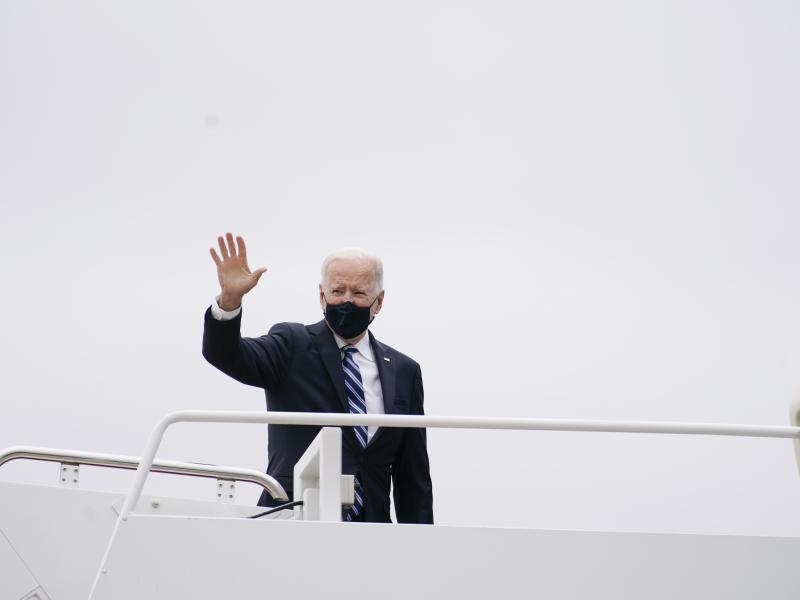
One consequence of having two narrowly and bitterly divided major political parties is their tendency to become completely self-absorbed, seemingly unaware or unconcerned that more than half of the electorate does not see things their way. They all but ignore the small but decisive number of pure independents whose views on issues and priorities are often quite different from those of the parties' bases.
It has become popular to describe this new level of heightened partisan polarization as tribalism, an apt term as party members tend to see everyone as members of their tribe, or not. Members of the opposite party are seen as the adversaries, or even “the enemy.” But again, the pure independents, who don’t lean to either party, are not seen as potential allies to be won over. Rather, they’re simply ignored.
In a Sunday piece for The Washington Post, Paul Kane cited a study of more than 2,600 likely voters conducted for Center Forward, a centrist, bipartisan think tank. The pollsters who conducted the survey, Democrat Joel Benenson and Republican Neil Newhouse, who were on opposing sides of the 2008 and 2012 presidential elections, found that “70 percent of independent voters said the country was headed in the wrong direction.”
As Benenson told Kane, “We’re not there” on the spending bills “and we’re not going to get there if we don’t reach into the center.”
In recent years, the parties’ focus—even obsession—over the wants and needs of their bases, to the exclusion of swing voters, has now become the norm. Republicans walk on eggshells trying not to offend a base that wants to fight culture wars and, notwithstanding the evidence, believes that former President Trump was actually reelected. Progressive Democrats, meanwhile, effectively hung President Biden out to dry, insisting on an enormous package that hasn’t earned the support of swing voters.
What many progressive Democrats did not seem to realize is that while they were busy holding Biden’s spending package hostage—one that would have addressed badly needed infrastructure needs that have gone unaddressed for three decades—public concern about the direction of the economy surged, putting Democratic House and Senate majorities in real danger, and putting the Virginia governorship in considerably more danger than it should have been. If Democrats lose that governorship, it will feel like an earthquake just hit at the Democratic National Committee headquarters.
While progressives did their party considerably more damage than they realize, it is a mistake to relieve Biden and Democratic congressional leaders of their share of culpability. Biden has been trying to emulate Franklin Roosevelt’s New Deal or Lyndon Johnson’s Great Society, yet it’s hard to imagine either of those presidents or their respective party leaders on the Hill putting up with their rank-and-file members sabotaging a signature piece of presidential legislation and making their own president appear politically impotent.
Had Democrats simply pushed through the hard-infrastructure package—the streets, bridges, water systems, ports, airports, and broadband expansions that have broad, bipartisan support—then pushed a more modestly sized social-spending measure, both their party and their president would be seen in a considerably better light than they are today and their majority would be in less danger.
As recently as June, Gallup polling showed Biden’s approval rating among independents at 55 percent. By July, it had dropped to 48 percent, then 43 percent in August, 37 percent in September, and 34 percent in the first half of this month. It’s no coincidence that, since summer, he’s focused on placating his base while the Afghanistan withdrawal went south, the economy weakened, and the COVID-19 pandemic worsened. All the while, the perception that the Biden administration and Democrats can get things done has eroded.
Progressives and even other Democrats frequently hold up various pieces of carefully cherry-picked polling results as evidence of the spending bills’ popularity, but the overall package never saw support much above the level of people who make up the party's extended base. What was popular with independents and swing voters was allowed to languish.
Too often, our political parties are their own worst enemies. They just don’t know it.
The article was originally published for the National Journal on October 25, 2021.


Subscribe Today
Our subscribers have first access to individual race pages for each House, Senate and Governors race, which will include race ratings (each race is rated on a seven-point scale) and a narrative analysis pertaining to that race.